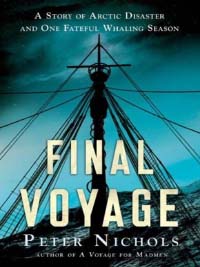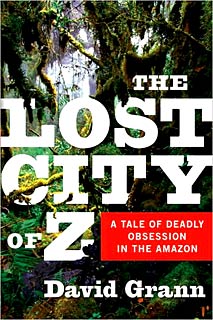Final Voyage is billed as an adventure story of Arctic disaster, of hundreds of people and a large number of whaleboats stranded in the vicinity of Point Barrow, Alaska, in late August and early September 1871. They had stayed a little too long in that extreme northern area because relatively warm conditions had lulled them into a false sense of security; the captains and crews were motivated to stay as long as they possibly could to make sure their boats were full of as much whale oil as they could hold before they returned to their home ports (after voyages that typically lasted as long as three or four years) in New England.
But winds and currents left them surrounded by encroaching ice floes that trapped them in narrow shallows close to the shore, and they finally had to abandon their 32 whaling ships to save the lives of the 1,219 people on board, which included crew members and a few captains’ wives and children.
Sounds gripping. However, the story of this drama is only a fraction of the book — about three chapters out of 18. Readers who expect adventure will be disappointed.
A more accurate description of the book is this: it is a history of the rise and fall of the American whaling industry, which was based primarily in New Bedford, Massachusetts, and similar towns in New England, from the 17th century through the late 19th century.
Peter Nichols discusses the factors that created and fortified the huge and prosperous industry, the “first industrialized oil business.” Whale oil was sought after primarily for lighting and lubrication; it made for clear, clean lighting, as opposed to smoky, unpleasant tallow candles.
He also gives the background of the Quakers who settled in these areas and the culture and mentality that helped whaling to flourish, the influential families who controlled the industry, and the whales, the ships, and the captains and crew who kept the enterprise going. It is an interesting, informative look at a past era of prospecting for a finite energy source, one that has resonance in our current day of diminishing oil reserves. However, to call it an “adventure story” is a stretch.
Rated: None. There may be a few uses of very mild language, but nothing more.




